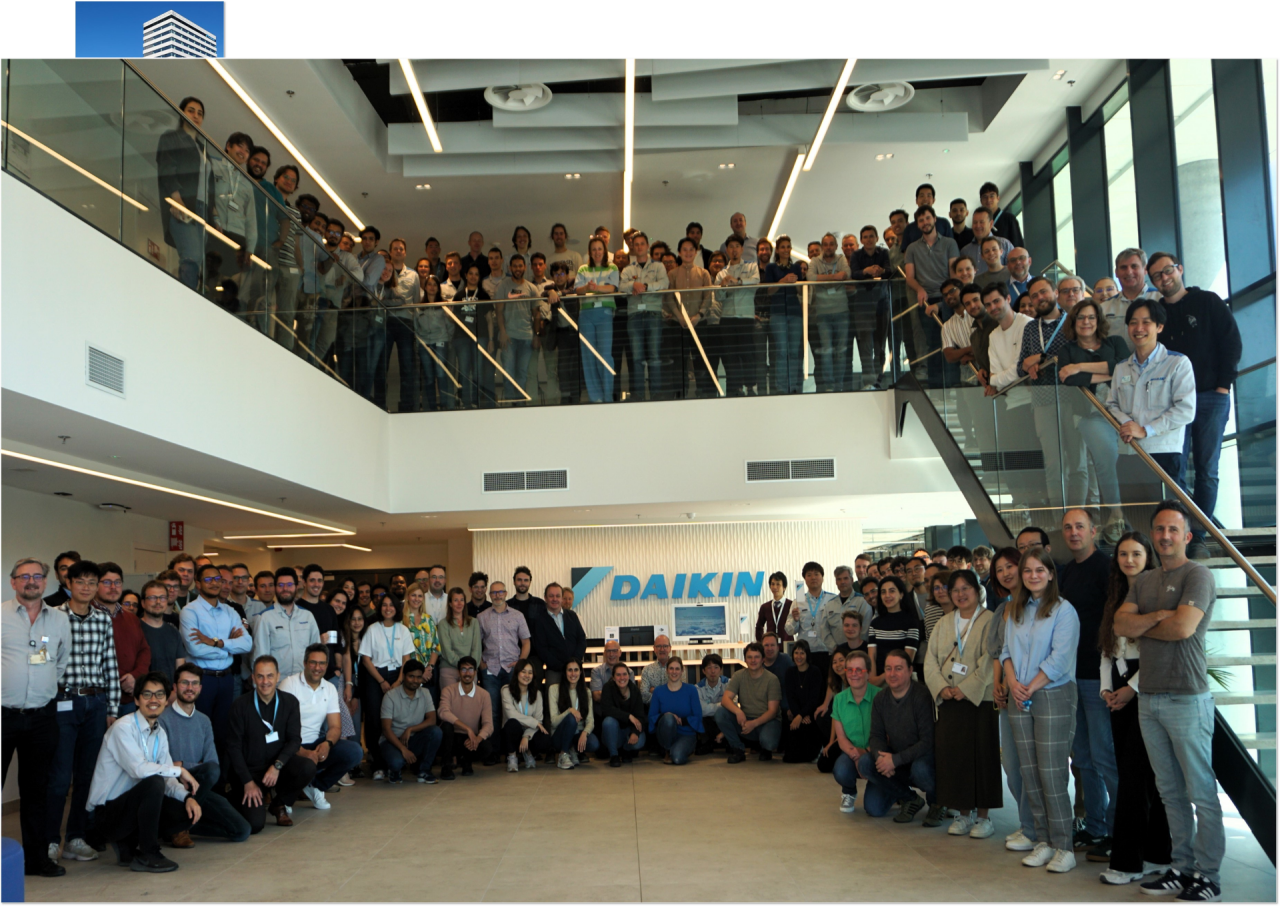
Typically, the purpose of HVAC systems is seen to be just providing buildings with the level of comfort required by different situations. However, HVAC systems are also used in industrial settings or laboratories as part of the manufacturing process in different sectors – from petrochemical, pharmaceutical and IT sectors to the food and beverage sector. In this setting the HVAC systems provide industrial facilities and laboratories with the cooling or heating that might be needed for a given process or activity.
Therefore, data centres, pharmaceutical industrial plants, chemicals industrial plants, refineries, distilleries, and many other facilities, all require HVAC systems to provide precision cooling and/or heating.
HVAC systems are especially important for certain facilities were strict temperature and humidity control are necessary to ensure product quality, safety where certain industrial processes are performed, or simply the reliability of equipment used.
As a market leader in the air conditioning sector, Daikin is well aware of the needs of process application projects which it meets by supplying solutions for different business sectors and facilities all over the world. Daikin’s solutions are preferred for its advanced technology, reliability, and outstanding energy efficiency:
Choosing the right technology to meet the needs of the facility
Process applications clearly need extremely reliable machines so the system can provide the required cooling, heating, and/or ventilation with great precision.
Whether the HVAC system is required to provide cooling, heating, and/or ventilation, it needs to be properly sized based on the required cooling and/or heating capacity, the airflow range that makes sense for the size of the facility, and the demands of the process equipment. Finally, HVAC systems must ensure high energy efficiency, as operational costs are important for any business.
Daikin single screw inverter technology makes the difference, ensuring the high efficiency of chillers and heat pumps both at full and partial loads. Inverter technology is ideal for applications where precise temperature control is needed. In fact, it is key when it comes to adapting a chiller’s performance to the temperature demand, ensuring the maximum efficiency of the plant.
Indoor Air Quality
Process application are not necessarily just about cooling or heating , as they might require air filtration systems that are able to address indoor air quality issues generated by industrial processes. For instance, in oil & gas industrial plants.
That kind of facility can be a very harsh environment for workers, and it is necessary to act to provide a safe environment for plant personnel. That means there is a need for high quality air filtration to avoid eliminate risks for workers. The solution is to choose air handling units featuring the highest filtration levels and the proper air-exchange rate for the size of the indoor environment that needs to be treated.
Click here to know more about what Daikin can do to improve indoor air quality
Load variation
Load variation is very relevant for process applications as some might require the HVAC system to deal with different loads based on the facility’s workload. For example, HVAC systems in data centres need to operate as efficiently as possible while matching the load variation generated by the different workloads servers at different moments of the day.
Other process applications needing cooling or heating for industrial or medical equipment, might be characterised for requiring constant loads during the year. However, that does not mean the chiller will operate in the same conditions throughout the whole year. In fact, to ensure that the load request for a process application is always satisfied, the chiller is designed to provide the proper cooling capacity in the worst operating conditions for the specific climate in the region (design conditions). This is because the ambient temperature van vary during the year or even during the day even though the load request remains constant.
So, the chiller will have to be able to provide the needed capacity at the design conditions even though it will operate at different (more favourable) outdoor ambient temperature conditions than those specified as design conditions for most of the year. This will require the chiller to operate at part load most of the time which is why inverter technology needs to be considered.
Read here about the benefit of using Daikin inverter technology
Reliability
Reliability of the HVAC system should also be considered, as breakdowns and downtime of the HVAC system can negatively affect the productivity of an industrial plant or data centre or the services provided by a hospital.
HVAC systems designed for process applications play an important role in ensuring that products, services, or activities are up to the standards that markets and legislations demand. For this reason, it is important to choose technology that stands out for proven reliability.
Read here about how Daikin provides CERN’s laboratories with proven reliability
Monitoring
Monitoring units’ performance is necessary to guarantee the best performance and reliability. It helps to reduce costs, making the whole system energy efficient and reliable. In fact, monitoring allows the implementation of efficiency strategies based on the observation of real data, as well as enabling the planning of preventive maintenance.
To prevent breakdowns and maintenance issues, Daikin can provide customers with a remote monitoring system such as Daikin on Site.
Daikin on Site is Daikin’s unique solution for remote monitoring and smart maintenance, which has been successfully used worldwide to support customers during the entire product lifecycle. It ensures the complete remote operation of any unit, is fully compatible with all Daikin Applied Europe products, and can integrate third-party products such as IoT devices (i.e., IAQ sensors).
The use of Daikin on Site is normally included in maintenance packages for peace of mind. It is a predictive maintenance tool, which is key for the pharmaceutical sector as downtime or issues with the storage cooling systems can negatively impact the business.
Daikin on Site also allows the creation of periodical reports of system performance or energy audits, which help keep the system as efficient as possible.
Read more here about how digital tools for HVAC monitoring are essential
Do you want to visit the Daikin factories to see where these technologies are designed and manufactured? If so, contact us here.



